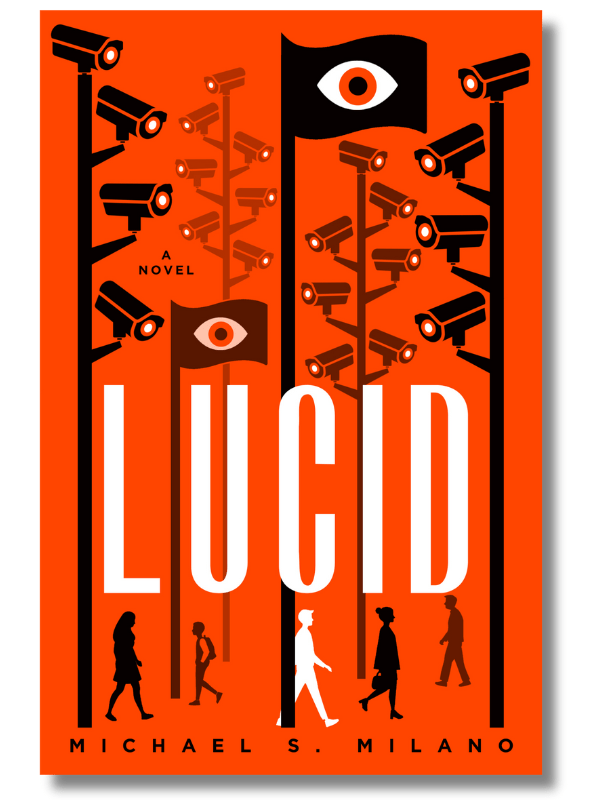Lucid
by Michael S. Milano
Genre: Science Fiction / Dystopia
Print Length: 292 pages
Reviewed by Erica Ball
A frightening futuristic tale about corporate manipulation and fear-based control
In the fight against a deadly virus, The Pansophical Corporation has become the people’s savior. It not only manufactures and distributes the life-saving vaccine for the constantly mutating Tembakoo virus, it is also the de facto government, law enforcement agency, and only source of news. Life under Pansophical is regressively patriarchal, highly controlled, and highly automated.
But everyone believes they love it.
Set in Seattle in 2084, the action in Lucid centers around Antony Sartori, a former Pansophical robotics engineer who, through a terrible accident and the loss of his beloved wife to the virus, has been relegated to the margins of respectable society.
One night, after a few too many drinks at his favorite haunt, Antony accidentally breaks the strict curfew and comes face-to-face with an overzealous public safety officer.
In the aftermath of this run-in, Antony begins to experience flashes of repressed memories and feelings of disquiet that unnerve him. He begins to notice he’s not the only one showing signs of being psychologically manipulated, and he starts to suspect that the world he inhabits is not as well-ordered as it seems.
As Antony tries to regain control of his mind and his life, he is forced again and again to choose between ignorance and safety—or a possibly devastating and dangerous truth. In this, Lucid is written in the vein of much classic dystopian fiction. But what sets it apart is the writing style, which somehow mixes the grand verbiage of propaganda, the sweeping questions of philosophy, and the detailed technical inner workings of both human and machine.
Reflecting Antony’s own past as a robotics engineer, the reductionist way in which humans are treated in this world mirrors the ways in which Pansophical has overly automated pretty much everything, from newsstands to medical care, to fast food, and even to social dynamics. Groupthink is common, and paranoia is rampant. People are terrified of any signs of illness but also of disruptions to the fragile artificial social cohesion, such as hints of sympathy toward Pansophical’s only challenger, the “terrorist group” known as Praxis.
With its dark take on humanity’s response to a global pandemic, Lucid would appeal to fans of post-apocalyptic fiction and stories of the fight against a bleak future. At its darkest, it reads much like a psychological horror, while the detailed descriptions of futuristic technologies will draw readers of science fiction. The social dynamics at play will appeal to those who are interested in the mechanisms of coercion, while the depiction of Pansophical and its rise to power will be a draw to those who are alert for signs of corporate overreach, especially in the name of philanthropy and social responsibility.
Dry, sarcastic, sardonic, and at times, absurdist, Lucid is a chilling take on a possible fear-filled future. It’s about the subtle erosion of human rights by a powerful entity in the name of public safety. It’s about the use of fear to manufacture consensus, and of coercion to achieve false unity. And it’s about the stripping away of our ultimate right, through the ultimate manipulation: the manipulation of our minds.
Thank you for reading Erica Ball’s book review of Lucid by Michael S. Milano! If you liked what you read, please spend some more time with us at the links below.
The post Book Review: Lucid appeared first on Independent Book Review.
